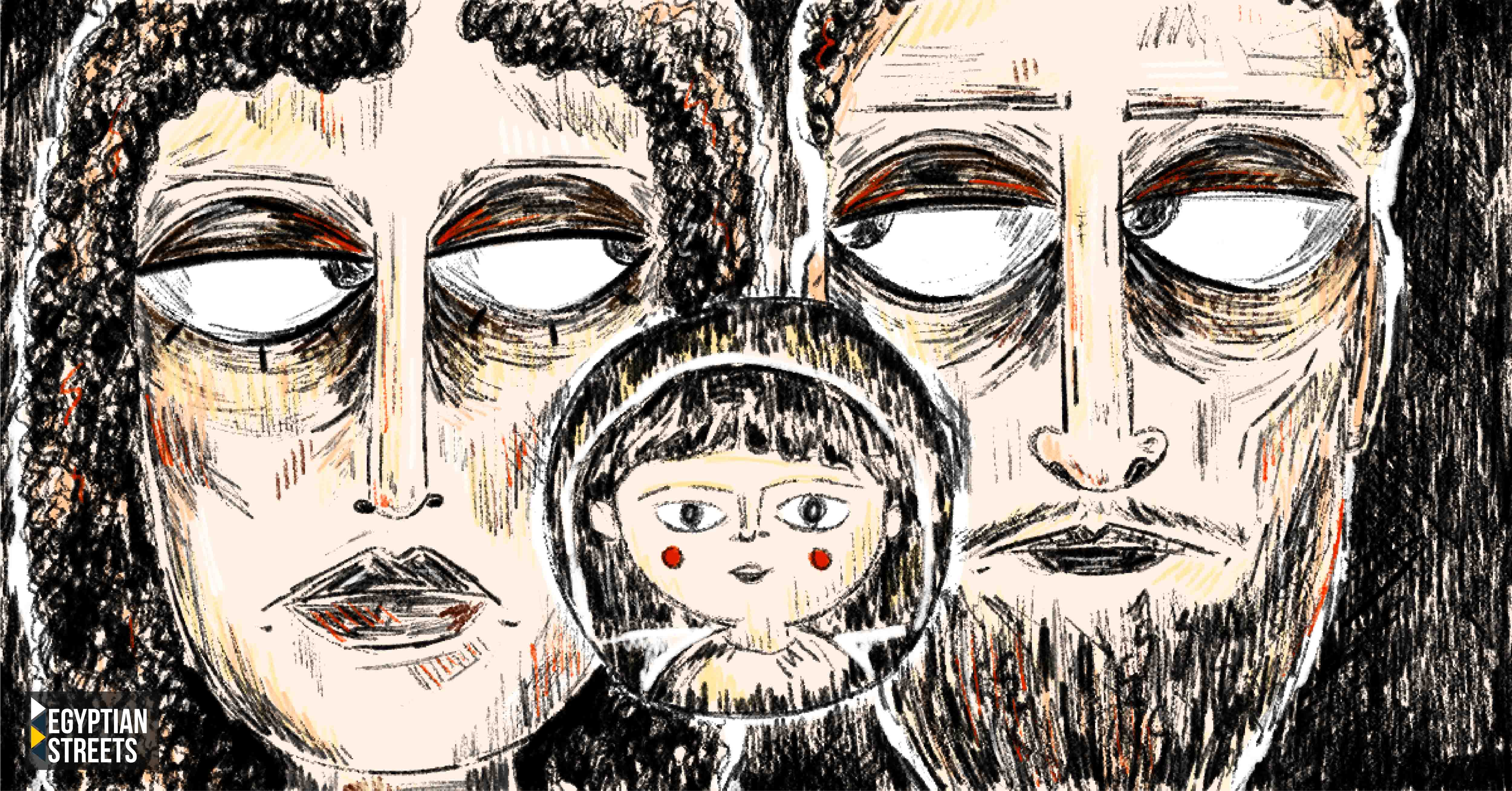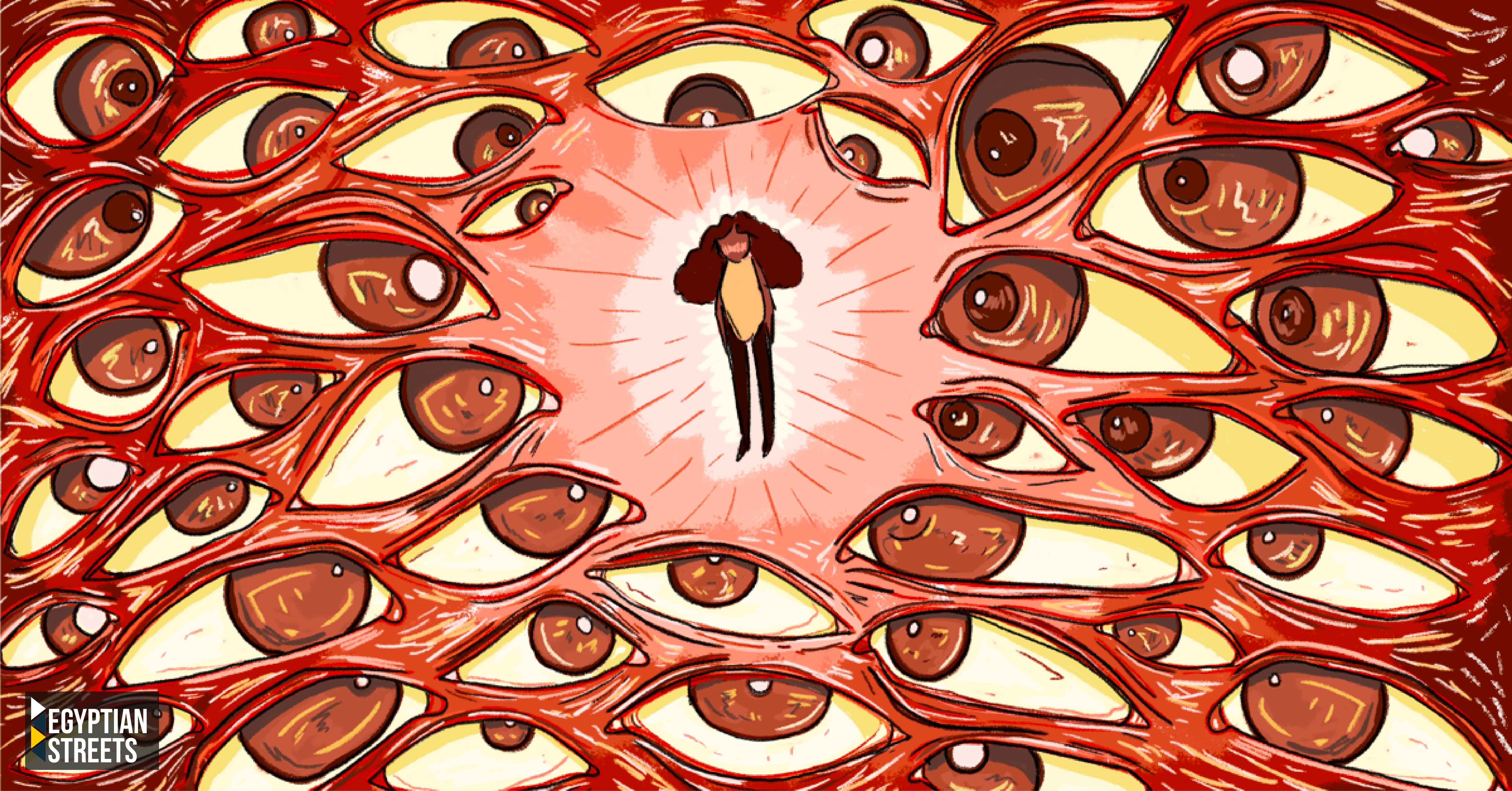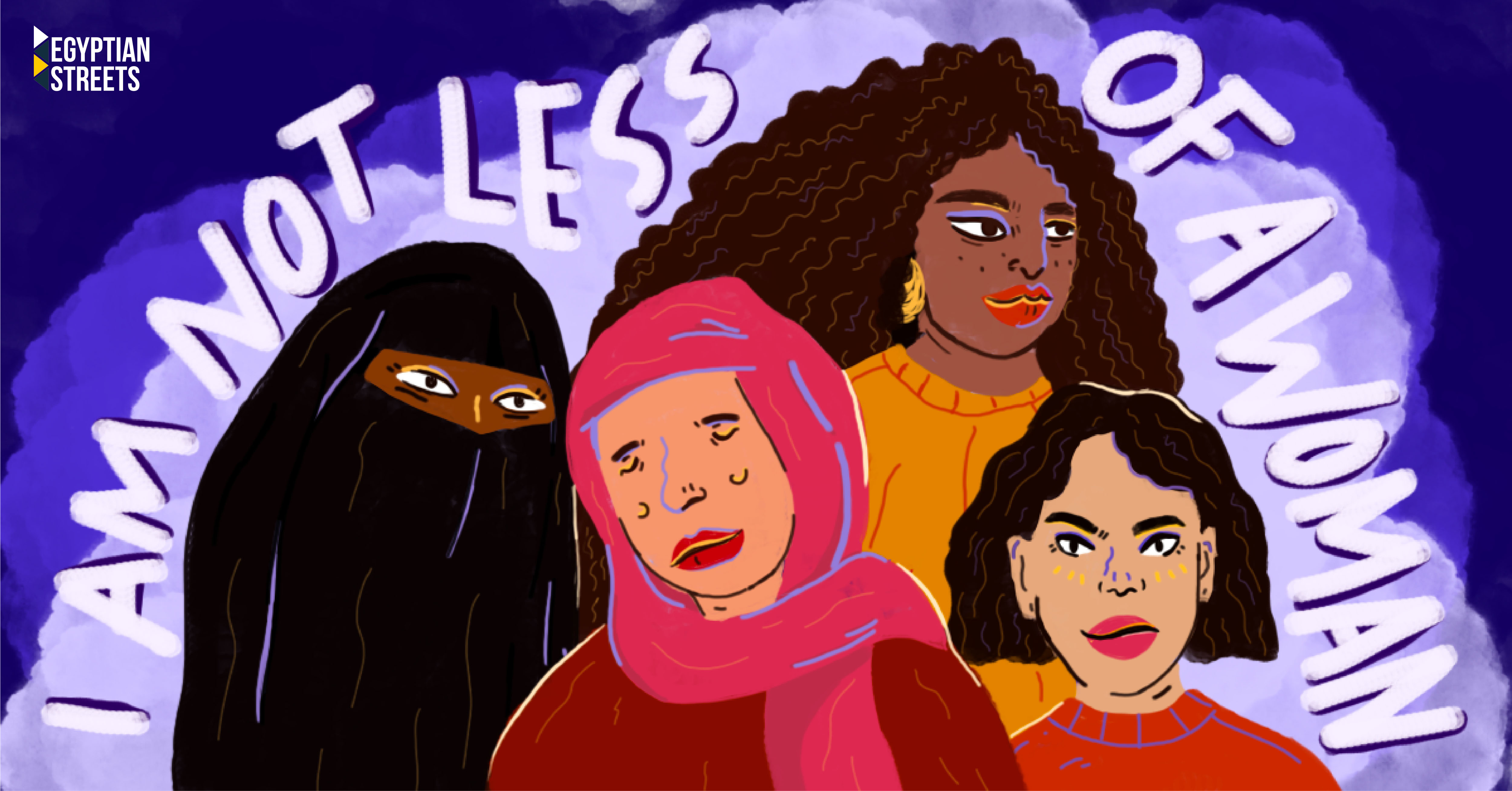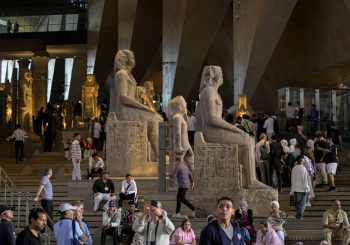“Growing up, I never had the desire to get married and have kids like other girls. I wanted a partner, but never had the sense that I wanted my own children,” content professional Noha Darwish explains.
Darwish, who is 38 years old and has been married for six years, chooses to be childless. Like her, many women in Egypt find themselves combating a stigma and constantly having to justify their stance to others; acquaintances and family members alike. From being told not to even humor the idea so as not to ‘jinx’ their fertility to being called weird and abnormal, they are oftentimes attacked for simply making a personal choice.
The Decision to Remain Childless
A 2017 US study found that a person’s decision to be voluntarily childless may cause some individuals to feel “morally outraged” due to their belief that parenthood is an essential and moral choice. The participants in the study also believed that the hypothetical childfree individuals in the study were “significantly less fulfilled” than those with children.
The same can be said for Egypt, where couples who are childless by choice are met with questions about who will take care of them in their old age, who will carry on the family name, and how the couple will stay connected without a child binding them forever. These challenges present themselves even with couples who want to conceive but cannot, with wives not only facing exclusion and ridicule, but also worrying about their husbands divorcing them or choosing a second wife.
Development specialist Mayada Serageldin, 34, also chooses to be childless, and while she can’t pinpoint a specific moment where she made that decision, she remembers how a human trafficking project she worked on first gave her doubts about whether she wanted to bring a child into this world.
“Talking to just one victim [of human trafficking] shows you the ugly side of humanity,” she says somberly, noting that if she ever changed her mind, she would opt for adoption.
Darwish shares a similar view and would also resort to adoption if she ended up changing her mind: “I don’t see the world as a good place right now; it’s overpopulated and full of challenges, especially this part of the world. I don’t want to force a child to live with our society’s problems and obstacles.”
There are several global accounts of women who decided they’d rather delay conception or remain childless due to the pandemic; either because they’ve seen how challenging it can be when observing the effects of the lockdown on young parents, or because they don’t want to bring children into the world during such an uncertain time. In a statement released in July 2020, the Egyptian Deputy Minister for Population Affairs stated that the pandemic may lead to a “sharp drop in the birth rate,” citing citizens’ health concerns and fears of unemployment.
Both Darwish and Serageldin were prompted to become self-reliant at a very early age, which is interesting considering a study cited in Psychology Today claiming that women who are childfree often share similar characteristics, one of which is independence.
Serageldin and her mother are both the eldest children, so her mother is used to being the backbone of the family and raised her the same way; especially when it comes to caring for younger siblings and cousins.
“You do it with love, but it’s a 24/7 job and it could be exhausting. I’m morally and sentimentally obligated to take care of everyone around me. Having a child is a confirmation that this becomes my life forever,” she says.
On the other hand, Darwish doesn’t want to “relive” her childhood with her own child. “Because I had to be responsible for myself since I was eight years old, having a child would be extremely taxing, both emotionally and physically,” she says.
She was initially worried that this concern was the only reason behind her decision and believes it’s important to examine the psychological reasons behind choosing to remain childless.
“Through therapy, I understood that this is not the reason behind my decision; I became at peace with the fact that I never felt the need to be a mother and it’s not something I’ve ever wanted,” she explains.
For 35-year-old Basma Mohamed, a data analyst, the reasoning is different but led to the same outcome. During her twenties, she was haunted by a feeling that she wouldn’t reach her thirtieth birthday. “It wasn’t depression, it was just a feeling. I didn’t want to bring a child who would be forced to fend for themselves if I’m gone,” she says.
Her childfree stance remained the same even after turning 30, but like Serageldin and Darwish, she realized that if she changed her mind she would rather adopt. “There are kids who already need homes, and you can also adopt a child as a single woman and don’t need to be married,” Mohamed explains.
One Egyptian who has been outspoken about her desire to remain childless is Egyptian-American journalist Mona ElTahawy, who tweeted about the issue using the hashtag #ThxBirthControl. Egyptian-Austrian actress Mona Hala, who also spoke out about not wanting to become a mother, was on the receiving end of social media backlash as a result.
Navigating Relationships as a Childfree Woman
Since having children in Egypt is considered to be the standard practice, being a childfree woman poses a new set of challenges when it comes to dating as it significantly reduces the pool of potential partners, whose families may interject the decision if the relationship becomes official.
“It’s one of the reasons why I canceled myself out of my age group for a while,” says Serageldin, who had to tread the dating scene very carefully as most men she came across scoffed at her decision to be childless.
She is currently in a relationship, and her partner’s childfree views were actually one of the reasons why they got closer before dating. “We have an agreement that if either of us has a change of heart, we’ll talk about it. It’s a big thing and we don’t want to allow it to be the downfall of the relationship,” she added.
Darwish had the same discussion with her husband before they got married and noted that their shared stance is also a reason why they bonded. While both are determined to remain childless, they’ve made it a point to continue checking in with each other every once in a while to make sure they are on the same page.
“It’s a conversation people need to have before marriage, but many people don’t because they’re too emotionally involved and don’t want problems,” she said.

Mohamed has faced different challenges in the dating world. She once discussed the idea of having children with a former partner; even though he shared her views, he didn’t believe her. “He said he’d seen other women change their minds after marriage,” she recalls.
Sadly, an important factor to consider is that not every childfree person who becomes a parent may have necessarily changed their minds – but very few are willing to speak up about it.
“There are no legal abortions in Egypt, and most types of birth control are harmful to women one way or another. There are many cases of women who go through unwanted pregnancies with no way of terminating them,” she says. According to articles 261 and 262 of the Egyptian penal code, abortions are punishable by law, and both the woman undergoing the abortion and the doctor performing the procedure risk being sent to prison.
The Challenges Imposed by Society
As a married woman, Darwish is regularly asked if she has plans to become a mother, but she makes it a point to express her desire to remain childless to help end the stigma.
She says she’s usually met with puzzled looks and oftentimes, pity. “Once you tell them it’s a choice, they’re quick to assume that you’ve gone through problems in life that drove you to this decision, or that you’re weird,” she said.
Mohamed faces similar issues when the topic comes up. “Some people find it selfish, since they feel like I don’t want to devote a part of my health and body for another person,” she says. However, there is evidence indicating that the opposite is correct and that choosing to have fewer children is better for the planet due to the large carbon footprint of having a child.

In 2018, a project titled “2 Kefaya” (two is enough) was launched by the Ministry of Social Solidarity to provide awareness about birth control and the role of family planning in providing better education and healthcare for children. This highlights the fact that childbearing is not just a personal choice, but also an economic one; some families simply cannot afford to have more children. In May, the country recorded its highest annual inflation rate since December 2020; recording increases in the prices of food and transport. Affording children’s education is also an issue affecting not just low-income segments, but the middle class as well.
Last December, the Chairman of the General Union for Civil Associations and Institutions explained that Egypt’s population problem constitutes a “threat” to the safety and security of the Egyptian citizen; explaining that the rate of economic growth needs to be three times larger than the rate of population growth in order for the problem to be mitigated.
Serageldin has also faced mixed reactions but feels the taboo nature of the topic as a whole is declining. While still met with the occasional “don’t say that or God will prevent you from having children,” she believes it’s become more socially acceptable to talk about compared to five years ago when announcing a childfree stance would have portrayed her as “blasphemous.”
What Darwish finds the most challenging is the societal pressure from people expecting her to conform. “You feel like you’re not allowed to be yourself, to voice your thoughts, to be a different type of woman. The stereotypical identity of a woman is always derived from her ability to give life, but this is very limiting because women are so much more than that,” she says.
However, these three women are not alone. According to a PRB report on fertility in the MENA region, women are now waiting longer before getting married and opt to have fewer children, which “marks a broader shift in women’s role in MENA society” because their value no longer revolves around just childbearing. This decline in fertility rate, which is expected to continue, is linked to increased access to education and more acceptance of family planning resources.
Darwish emphasizes that giving life in itself is not special and happens millions of times a day around the world; what’s special is truly giving one’s children a good life and nurturing them.
“As a woman who chooses to be childless, I’m viewed as a woman who isn’t fulfilling her potential, but I am fulfilling my potential as a human being,” Darwish says. “I feel complete and I am not any less of a woman without a child.”
Subscribe to the Egyptian Streets’ weekly newsletter! Catch up on the latest news, arts & culture headlines, exclusive features and more stories that matter, delivered straight to your inbox by clicking here.








Comments (3)
[…] Yussef El Guindi: From Acting to Playwriting, an Egyptian, British and American Life Defying a Culture: The Challenges of Being a Childfree Woman in Egypt […]
[…] Source link […]